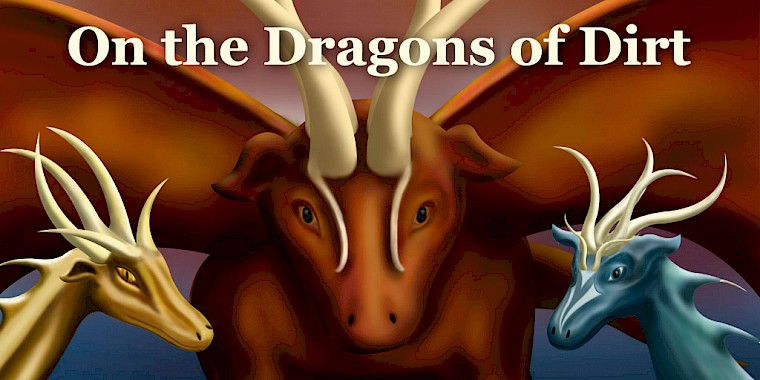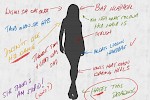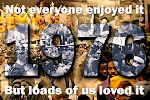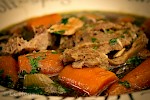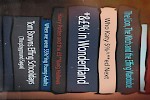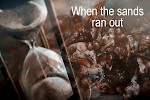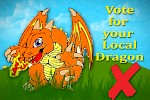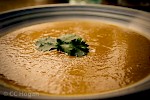Dragon Communities
Dragons like their communities. Although they do not understand the need for nations, and their appreciation of land ownership is rather vague, they like the comfort of living in small, friendly villages; as I have said, they have no need for towns.
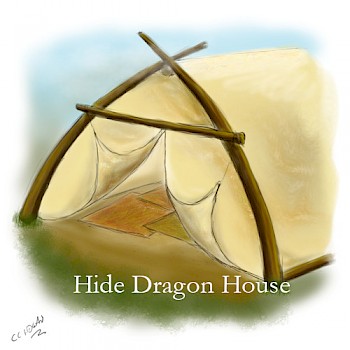 A typical village will have anything from ten to fifty dragons. On the forgotten continent of Angyn, and in earlier times on The Prelates and Bind, these were mixed communities of mostly the large, greater dragons. But at the time of Johnson Farthing (Series One), they had become single people villages; all sea dragons or all red dragons, for instance.
A typical village will have anything from ten to fifty dragons. On the forgotten continent of Angyn, and in earlier times on The Prelates and Bind, these were mixed communities of mostly the large, greater dragons. But at the time of Johnson Farthing (Series One), they had become single people villages; all sea dragons or all red dragons, for instance.
Dragons build single-roomed houses, one per dragon, and then normally a large, long meeting house that is used for chatter out of the rain. Dragons do not suffer from the cold like humans do, and though they prefer shelter from storms, are happiest when outside. Their houses are really more for sleeping or storing personal possessions than for anything else.
Dragons’ lives are very much a shared existence. They are seen as maturing to adulthood in their early teens, but will not be fully grown and able to fly till their mid to late twenties; some even later. When younger they will work on fishing nets or farming as their contribution to village life. Dragons do not use any sort of coin when trading with each other but will barter with other dragon villages. They tend to produce goods like food and beer, rugs and canvas, leather and basic tools, and some simple jewellery. Aside from beer, none of their goods are particularly bulky, so can be carried on their backs. It is easy for them to trade long distances if needed, and there is a constant to and fro of dragon traffic across the land.
Dragons have an inbuilt intolerance of hierarchy, something they see as terribly destructive in human society, and so their communities are run on a very much communal basis. However, it is traditional for one dragon to be named the Dragon Elder. Fren-Eirol was the dragon elder in her village in Wead-Wodder and Bren-Hevvin the dragon elder in the re-established community in the Bain Hills. It is thought that this almost unnecessary post was created for dealing with human communities who would find it strange not to deal with a chosen leader. But all villages have an elder, even if they are often ignored.
In many ways, dragons live quite primitive lives. They do not use huge amounts of resources such as coal or iron, they are great hunters as well as farmers, they do not wear clothing other than for protection, and do not build large structures except for basic houses, stores and meeting houses. And yet, this is an ancient, highly cultured society. They love stories, songs, and some dragons paint. They will talk for many hours about issues that affect them. All dragons are literate, and their own language (which in my books steals from both Welsh and Anglo-Saxon) is rich and lends itself to poetry and song. And, of course, they love flying. To take to the air, let it gather under their large, thin wings, and lift them up high above the world, is a joy that only dragons and birds can fully appreciate.
Next: A Shared Life »

